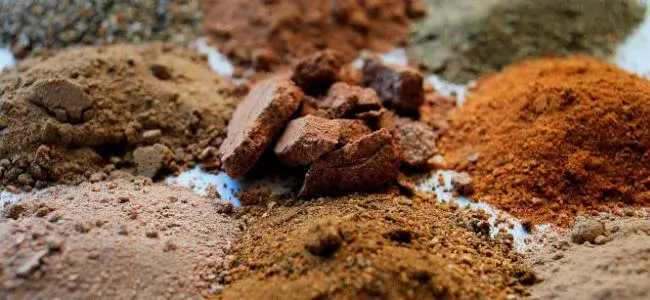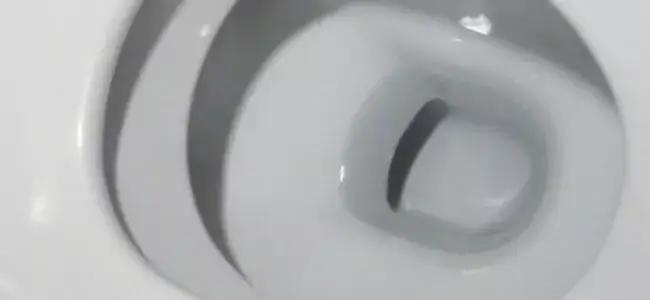What to know when buying a house with a septic tank

TABLE OF CONTENTS
As a homeowner with a septic system, it is your responsibility to maintain it and make sure it is working optimally. A properly maintained septic system protects the environment and the home and that is why homeowners are encouraged to periodically inspect and pump the tank. With proper maintenance, and as long as the septic tank was designed properly, it should serve you for decades without failing. The following are some important things that you should know before you purchase a house with a septic tank.
Know how the septic system works
A conventional septic system has four components which are the pipes from the house, the septic tank, the drain field, and the soil. Microbes in the septic tank as well as in the soil help in liquefying the organic waste as well as treating the water before it reaches the groundwater. The function of the piping is to carry the wastewater from your house into the septic tank. The septic tank is usually made from concrete although other materials like fiberglass and steel can also be used. The primary function of the septic tank is to hold wastewater for a while in order to allow bacteria to digest the organic waste as the other suspended solids settle at the bottom of the tank. Modern tanks have risers which make it easier to locate as well as inspect and pump them.
Once the bacteria have liquified the organic waste, it is sent to the drain field for further treatment before its released. If the drain field gets loaded with too much water, it will flood and the sewage might be seen on the ground surface or it will result in backups in the septic tank and the house. From the drain field, the effluent percolates into the soil where it receives the final treatment by removing microbes and nutrients before the water is finally sent back to the water cycle.
Does the home use a conventional or an advanced system?
When you buy a house with a septic tank, there is a very good chance that it uses a conventional septic system. Conventional systems use a combination of physical and biological processes to treat wastewater and the wastewater is treated in the septic tank and in the drain field. However, there are some scenarios where it might not be feasible to install a conventional system. For instance, if space is an issue, it might not be possible to establish the recommended distance between the leach field and the water well. Other scenarios where conventional systems might not be feasible include properties that do not have the ideal percolation rates or those that are on properties where the water table is pretty high. This is where advanced septic systems come in.
Advanced systems use some other additional technologies to improve the quality of the water. Because these systems have advanced components, they might also need more care and maintenance than their conventional counterparts. Advanced systems require annual maintenance which may include monitoring and reporting. You may also have to replace some equipment. For instance, if the media gets contaminated, it will need replacing. You also need to check the pump for air bubbles. As you may have guessed, this will attract an additional cost. Knowing whether the property has a conventional or an advanced septic system will help you to know what will be expected of you as the new homeowner.
Does the home use a cesspool?
A cesspool is a pit dug in the ground for holding wastewater from the house. This pit’s walls are typically made from concrete or bricks and they have perforations to allow for the percolation of the wastewater into the soil. Cesspools do not do much treatment of wastewater and rely on the soil around the cesspit to treat the water as it seeps through. Because cesspools are not designed to treat wastewater, the government banned their installation on any house that was built after 1970. However, the older houses that were built before this time can still have the cesspools. If you are buying an old house, it is important to find out if the house uses a cesspit or a septic system. This is important because you have to determine whether you will replace the cesspool or if you will continue using it.
How to save money on maintenance after buying a house with a septic tank
As a homeowner of a house with a septic tank, routine maintenance of the septic system is a must because, without it, the system will fail and have serious ramifications on the environment. Here are some important tips that can help you to save money as a septic system owner.
Do not skip scheduled pumping
Depending on your location, you are required by the government to pump the septic tank every 2-5 years. If you skip the pumping schedule, the tank might get full and start to backup. Not only are such failures messy but they end up costing you more money.
Watch the products you use
As a septic system owner, you have to be very careful with the products you use. Most of the commercial cleaning agents used in homes are made from chemicals that are quite toxic to bacteria. Using these kinds of products will, therefore, reduce the efficiency of your septic system.
Regular inspections
Regular inspections will help you to always be on top of things. Like most other systems, it is best to detect problem areas and fix them before it is too late.
Repair any damages
Repair any damage that you notice as soon as possible. When there are cracks or any other damages that go unrepaired, the problem will get worse over time until the system becomes unusable. Apart from the pollution threats of a neglected system, an unusable septic system will also drastically lower the value of your property.
Use biological additives
The septic tank relies on bacteria in the tank to liquefy organic waste. But because of the harmful substances that most homeowners send down the drain unknowingly, the numbers of the bacteria are greatly reduced over time. Biological additives can help reverse this. For instance, Bio-Sol’s biological additives add billions of bacteria and enzymes into the septic tank.
Ask for records of maintenance
It is always a good idea to keep a record of the maintenance of the septic tank. The record should capture all the important information and dates like the pumping history, the inspection record, the location of the drain field and any other issues that the owner might have run into. This record will help you to know where to pick it up as the new owner and it will also give you a sneak peek into the health of the system you are acquiring.
Carry out an independent inspection
Don’t take the word of the seller as gospel truth – the only way to be absolutely sure of the state of the septic system is to carry out an independent inspection. Do not commit to buy a house with a septic tank until a qualified inspector has looked at the system and given it a clean bill of health. Most homeowners make the mistake of only inspecting the system at the point of installation and never bother to do it again. This is why you must insist on getting an expert to examine the system. Your realtor should have no problem with the request for inspection because they already know how this can impact the value of the property. Some banks will even need the inspection report before they approve a mortgage. A septic system inspection should cover the following:
- Locate the septic tank and drain field
- Uncover the manhole and other inspection ports
- Flushing the toilet and opening sinks to ensure wastewater from the house flows out as expected
- Checking the tank and drain field area.
- Measuring the scum and sludge layers
You can also test the health of the system by using bio-sol’s inexpensive tracer dye tablets. Just flush the tablets in your toilet and if the septic system has a problem, you will notice a luminous green color around the leach field after 2 days. As simple as this procedure may seem, it is actually the most effective method of determining the health of the septic system. In fact, this is the test that inspectors use to determine if the septic system has failed. Since this is a non-intrusive test, anyone can do it.
Before you commit to purchasing a house, insist on a septic system inspection. It is in your best interest to ensure the house passes the septic system inspection. If you skip this step, you might end up purchasing a house with a failed septic system and you will be required to replace the entire system. Replacing a septic system is an expensive affair and could cost you an additional C$10,000 – C$30,000.
What can make your septic system to fail?
The last thing you want is in your new house is a failed septic system. in order to avoid this, you have to know what causes a septic system failure. This way, you will know what you need to do to avoid this failure. The following are some of the main causes of septic system failure.
Toxic products
This could be anything from using an antibacterial soap in the shower to cleaning paint rollers in the sink. Refer to our free eBook for a more comprehensive list of all the products you should avoid using in your new house.
Hydraulic overload
The septic system wasn’t designed to receive too much water at a go. That’s because if the tank gets too much water, it will force some of it out of the tank to make room for the incoming water. The wastewater that leaves the septic tank due to hydraulic overload may not have been adequately treated and that can cause problems. For this reason, avoid filling your bathtub with water and space out the laundry instead of doing huge loads of laundry at a go.
Garbage disposal
Garbage disposals shouldn’t be used for houses that have septic systems. Using them will only lead to clogged up systems due to too much organic and inorganic waste that is sent into the system. Using a garbage disposal is a sure way of causing a huge scum and sludge buildup within a short time.
Improper design
When the septic tank is not properly designed or installed, it can easily fail. Some of the soils will provide excellent treatment of wastewater while others will not. For this reason, the design that is to be used on a property must be arrived at after doing soil analysis and a percolation test. The number of bedrooms in the house must be taken into account when determining the size of the septic tank and the drain field.
Structural damage
If undue external pressure is applied to the septic tank, it could cause the pipes to break and the tank to crack. Such damages will cause the effluent to leak into the environment in its raw form and that causes pollution. You should, therefore, avoid driving or moving heavy machinery and objects or constructing over the septic tank.
CAUTION: never wash off paint in the sink! After painting the house, make sure to dispose of any leftover paint and the brushes in a nearby hazardous waste facility. Washing the brushes or pouring leftover paint down the drain can result in septic system failure.
Renovating a house with a septic tank
If you intend to do some renovations after buying a house with a septic tank, you should know that some renovations might require the modification of the septic system. For instance, the size of the septic tank is determined by the number of bedrooms in the house. If you are thinking of adding an additional bedroom, you might be required by law to install a bigger septic tank assuming the one you have on the property is not big enough. The following table gives the recommended septic tank sizes.
| Number of bedrooms | Minimum number of tanks (in gallons) |
| 1-2 | 750 |
| 3 | 1,000 |
| 4 | 1,250 |
| 5 | 1,250 |
| 6 | 1,400 |
It is also worth noting that construction on the property should be done with uttermost care to avoid damaging the septic system in any way. For starters driving earthmovers and any other heavy machinery above the septic tank is not recommended because it can result in structural damage to the septic tank. Also, paint and any solvents that might be used in the renovations should not get into the septic tank because they can cause the septic system to fail.
Does the home have a private well?
Most homes that have a septic system also have private wells. If this is the case, it is imperative that you test the well to ensure the water has not been contaminated by the septic system. Before purchasing a property that has a private well, get in touch with your local health department and they should conduct a free or an inexpensive test on the water quality. Just to be absolutely safe, you might also want to test the water for other foreign substances like metals and chemicals. However, testing for these substances will have to be done in an independent lab but it will totally be worth it.
As the new homeowner, it will also be your responsibility to maintain the well and ensure it is not contaminated by your system. You will have to test the water well annually to ensure it is not contaminated with coliform bacteria. Apart from keeping you and your family safe from the disease-causing microbes, keeping a record of the annual tests can come in handy if you need compensation from someone that pollutes your well.
Conclusion
Buying a new home is an important decision and a commitment that you are typically not looking to get out in the near future. It is, therefore, one of the decisions you do not want to rush. Take time to inspect the septic system on the property to avoid any rude shocks once you move in. The state of the septic tank should be one of the main pricing factors of your new property. Apart from checking to ensure the septic tank is in good working condition, you also want to test the water to ensure the well has not been contaminated by the septic system. Last but not least, you should get ready to use the system properly and maintain it as is required. This will call for your understanding of how the septic system works as well as being in the know on the maintenance routines. Once you do your due diligence, you will buy a house that has a good septic system that will serve you and your family for decades without failing.
OUR LATEST BLOG POSTS

Strange facts about septic systems
If you are a septic system owner, you might have heard all manner of myths. For instance, there is a common myth that throwing a dead cat in the septic tank can help rejuvenate bacteria and thereby make the septic tank more effective. But is this even true? In this article, we will not only answer that […]

Soils types and their impact on septic systems
SOILS TYPES AND THEIR IMPACT ON SEPTIC SYSTEMS However good your septic system is, it depends on the right soil type to complete the process of purifying the wastewater from your home. The soil type in the drainfield area will determine how well the effluent is filtered and if the water that is sent back to the […]

Avoid flushing these if you have a septic tank
Most homeowners wrongfully assume that their toilet can serve as some sort of garbage disposal. As a result, they end up flushing all manner of things in the toilets. Some of the things that are flushed down the toilet are actually innocent mistakes because homeowners think that is the right way to dispose of the products while in other cases, it is just a don’t care attitude. Whichever the case may be, flushing some of these things can result in septic system failure and it could cost you a fortune. We have rounded up some of the commonly-flushed products that you should never flush if you have a septic system.
PERFECT! I WOULD NEED...
Discover which products are the best for your needs!You can contact us at 1-800-378-6132 (toll free) or click on the following button to access our free online evaluation.
GET A QUOTE ONLINELog in to your account
Whoops! It happens sometimes...
CREATE A NEW ACCOUNT
CONGRATS!
You are now registered and ready to go. You can add and change any of your information on your client profile.
Unfortunately, we do not ship our products to the USA at the moment.
But, if you live in the United States and would like to order them, please fill in the form below. You will then be notified as soon as they are available in your country.
Thank you for your understanding!
Malheureusement, nous n’expédions pas nos produits en France pour le moment.
Mais, si vous êtes résident français et aimeriez les commander, remplissez s’il vous plaît le formulaire ci-dessous. Nous pourrons ainsi vous aviser aussitôt qu’ils seront disponibles dans votre pays.
Merci de votre compréhension!

-
30 products to avoid
-
What to replace them with
-
And everything you should know about your septic system
DOWNLOAD THIS FREE EBOOK!
Which email address should we send it to?


